 Watching the Wolves take down the Spurs got me thinking about waste and appreciation. It’s fitting given the team’s marketing slogan this year: “Don’t Miss a Moment!”
Watching the Wolves take down the Spurs got me thinking about waste and appreciation. It’s fitting given the team’s marketing slogan this year: “Don’t Miss a Moment!”
Sitting in the lower deck facing the home bench, I noticed three Black teens who were looking sharp and passing for 20 something. Six and half minutes into the game, they got the boot when a pair of ticket holders on what looked to be a second or third date showed up to claim their seats. With the Wolves out of the playoffs and the game being a make-up for the Mexico City cancellation, a thin crowd emboldened these nomads and a host of others to negotiate their way from as far as the nosebleeds to a better view. Spoiling a cloak of confidence, our youth would get bounced two more times before they would finally settle in the row in front of us where they enjoyed the game in peace except to shrink in the shadow of trickling latecomers who would block our view as they scanned for their seats.
By the fourth quarter a game well in or out of hand will prompt an exodus of fans driven to be the first to line up at the parking pay stations, of parents getting a jump on the bedtime routine or of smokers tamping packs of cigarettes as they go. As hordes of deserters flee to do whatever is next, our transients bounce again – this time voluntarily to the best seats of the night, if only to be enjoyed for the last crumbs of the game, 163 seconds.
Season ticket holders arriving deep into the first quarter and leaving before the final buzzer is common. Even with a fraction of a second left in regulation, we could be down by two with K-Love at the line for a chance to knot it up and still flowing steadily toward the exit signs will be the half-hearted, preoccupied and the self-inflicted hurried.
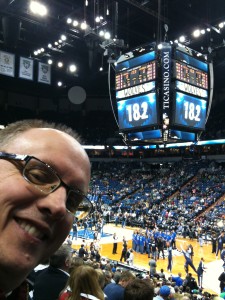 As if to invite a dance, pressed shirts will prod their companions with the pressure of two fingers applied to the small of the back. With feigned self-detachment, fresh manicures and cruel shoes are guided passed an imaginary sea of the envious. Shared with hot mini donuts and cotton candy, a final trip down the runway is savored.
As if to invite a dance, pressed shirts will prod their companions with the pressure of two fingers applied to the small of the back. With feigned self-detachment, fresh manicures and cruel shoes are guided passed an imaginary sea of the envious. Shared with hot mini donuts and cotton candy, a final trip down the runway is savored.
Cut with enough Wolves gear, Ken and Barbie are bearable. With the primary exception of the deplorable bandwagon fans of major market teams who will rub it in given the chance, the arena has a good vibe. From where we sit, every age is represented. Every color is there. It’s common to hear foreign languages. Unlike the Democratic National Convention where I saw the staging and the coaching of multicultural “delegates”, the game naturally attracts diversity. It’s an elusive goal for a lot of organizations that fret, “Look around this table! Everyone is white!” The easy criticism is often hurled by the well-meaning politically correct or an especially unimaginative resume-builder. While these detractors couldn’t articulate an organization’s mission or get excited about it, they’re certain that offering “culturally appropriate” snacks will fill their insufferable meetings with the disenfranchised.
While the game doesn’t have this particular problem, it can highlight some of our worst embarrassments. Wealth radiates from center court, to the corporations that occupy courtside, through the first eight rows of first class fans who are guarded by diligent ushers and who are afforded the dignity of ordering their French fries off of a menu, while the rest of us lowlifes have to flag down a hawker who’s balancing peanuts on his head. Then it’s passed the private party rooms and up to rafters where the cheap seats bring to mind the economic disparities of the Titanic. Radiating further out into the streets, beggars make a pitch for diapers, a way home or a night at the shelter.
Combative language is used to describe the game, while its fans are frisked at the door and told to report cussing and any other non-family-friendly behavior. Here players are weapons who penetrate the paint and attack the basket. While we had him, with exception of the week following the Connecticut school shooting where 26 elementary students were gunned down and for whom there was a hollow moment of silence at the Target Center, whenever Andrei Kirilenko would score, the in-arena announcer would yell “A—- K—- 47!” Hundreds of fans formally complained about it. But the franchise couldn’t convince the player to ditch the nickname and had no power to compel him or the equally clueless and inaccessible announcer to do it. It was a relief when the Russian signed with the Nets. He was making a moral dilemma out of what should be simple pleasure: Being part of a crowd that erupts when Love knocks down a buzzer beater, or when a stealthy Brewer cuts in for another steal, or when Rubio makes a no-look pass through traffic to Dieng for the dunk. It’s hard to appreciate the game when you’re getting kicked in the gut, especially when you’re already sucking up a bunch of other infractions, such as the absence of any fully clothed women who play anything but support roles.
To cope with the crammed escalators and the insanity inducing congested parking ramps, our strategy hasn’t been to ditch early but to stick around until security gives us the hook, usually after DJ Mad Mardigan packs it in. Nevertheless, while squandering enviable seats is weirdly elitist, it also makes me wonder. How have I wasted? How have I rushed? How have I failed to appreciate what I have?
When I was working at a French group home, I recall jumping up to clear the table and do the dishes after a meal with the residents at “La Garenne”, our beach home on the English Channel. Abandoning 30 dinner guests to scrub pans was taken to be rude, not helpful. Kitchen duty was a conspicuous price to pay for a minute to myself. We were expected to linger.
A trip to Missoula presented another “Don’t Miss a Moment” lesson. I was joining my friend Chris for his college reunion and was late meeting him for our departure from his Newcastle home. Construction in the southern Black Hills jammed me up for almost an hour on a dirt road with a lost New Yorker who had never seen a buffalo; at the age of 30, he had never left Manhattan until then. Over the apology I offered upon my arrival, Chris popped a TV dinner – one for each of us – in the oven and offered me something to drink. After a leisurely bite, we took his golden retriever to the sitter. Bob obliviously launched one subject after another as we kicked rocks in the driveway and the dog politely listened without comment. Somehow, after securing our bikes to the top of the car, we finally set out only to stop but fifty miles down the road where Chris insisted that we get a “real milkshake” from an “authentic soda fountain”. He acted like I was a refugee who had never seen ice cream before. As dusk came and went, we opted to sit at the counter instead of enjoying our frosty treat like normal people – in a speeding car. It turns out that “making time” is overrated.
I don’t always fail.
Trying to catch a nap under buzzing fluorescents in the hard melamine chairs of a Greyhound terminal while guarding my wallet has enhanced my appreciation for good bed, specifically the feel of a mattress pressing against my back, a generous pillow cradling my head, the smell of clean pressed sheets, and a blanket holding it all together with its perfect weight, a barrier between my skin and a cold draft; I am keenly aware of the roof and the elements from which it keeps me safe.
Staying for the movie credits is another relished small act of resistance in a world that keeps telling me to hurry up. It’s also a nod to my brother who is an actor. After taking in a show, it seems rude to sneak out just as we are about to recognize the creators who must be thrilled to see their names scrolling by. I only wish that such courtesies would enhance my trivia knowledge. I’d like to be the sort who can whip out the answer to questions like “Who played ‘Bus Driver #1’ in It Happened One Night?” It was Ward Bond and I will never be a trivia buff.
Ironically, McDonald’s marketers have detected a collective discomfort with our neurotic multitasking and they’re using it to endear us to their brand. In one commercial a travelling businessman is encouraged to enjoy his coffee unplugged. In the sequel (the sequel?) with only the ambient noise of a train station, we see that our businessman has learned his lesson.
In a separate “slow it down and unplug” ad campaign, Sports Authority holiday commercials tell us to “Give the gift of sport.” We’re promised that our soccer balls will never need an upgrade and this is somehow the most refreshing thing we’ve ever heard.
https://www.youtube.com/watch?v=5K9GPJiRLno
It’s unlikely that corporate marketers hold the answer to a call to dial it down. But these ads could indicate our creeping unhappiness with being herded and rushed and constantly plugged in. Will our dissatisfaction eventually inflate us with the resolve to live at a human pace? Or will the humble luxury of a McCafe or some similar product calm our yearnings as promised, keeping us just happy enough?
In the meantime, I’ll take to heart the lessons of the uninitiated, youth who scramble for a better view to savor what so many of us dismissively toss out.
 I am shooting a video for a new start-up company to use as part of a Kickstarter campaign. This new business seeks to make wine and cider using fruits and vegetables from local sources, including the yards of volunteers who have a surplus. To help tell their story, I would like some footage of vegetable gardens, fruit trees, raspberries, blackberries and even bee hives from area homes. If you would be willing to showcase your apple tree, garden or anything else in this video, I would love to hear from you. I would initially need:
I am shooting a video for a new start-up company to use as part of a Kickstarter campaign. This new business seeks to make wine and cider using fruits and vegetables from local sources, including the yards of volunteers who have a surplus. To help tell their story, I would like some footage of vegetable gardens, fruit trees, raspberries, blackberries and even bee hives from area homes. If you would be willing to showcase your apple tree, garden or anything else in this video, I would love to hear from you. I would initially need:
 Watching the Wolves take down the Spurs got me thinking about waste and appreciation. It’s fitting given the team’s marketing slogan this year: “Don’t Miss a Moment!”
Watching the Wolves take down the Spurs got me thinking about waste and appreciation. It’s fitting given the team’s marketing slogan this year: “Don’t Miss a Moment!” As if to invite a dance, pressed shirts will prod their companions with the pressure of two fingers applied to the small of the back. With feigned self-detachment, fresh manicures and cruel shoes are guided passed an imaginary sea of the envious. Shared with hot mini donuts and cotton candy, a final trip down the runway is savored.
As if to invite a dance, pressed shirts will prod their companions with the pressure of two fingers applied to the small of the back. With feigned self-detachment, fresh manicures and cruel shoes are guided passed an imaginary sea of the envious. Shared with hot mini donuts and cotton candy, a final trip down the runway is savored. One day at work as I waited for my turn for the microwave in a cramped but lobbyist-free zone, a co-worker told of feeling trapped by a house he could not sell. He was “underwater” and – on top of that painful reality – paying almost two hundred dollars a month in mortgage insurance. Mortgage insurance? What’s that? “Avoid it if you can”, he warned. “It’s a terrible feeling to hand over that kind of money and have nothing to show for it.” I had a lot to learn.
One day at work as I waited for my turn for the microwave in a cramped but lobbyist-free zone, a co-worker told of feeling trapped by a house he could not sell. He was “underwater” and – on top of that painful reality – paying almost two hundred dollars a month in mortgage insurance. Mortgage insurance? What’s that? “Avoid it if you can”, he warned. “It’s a terrible feeling to hand over that kind of money and have nothing to show for it.” I had a lot to learn. /!
/! /!
/! /!
/! /!
/! /!
/! /!
/! /!
/! /!
/! /!
/! /!
/!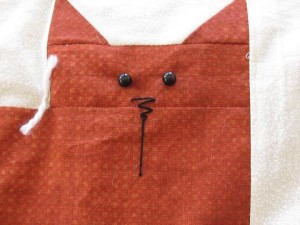 /!
/! /!
/!


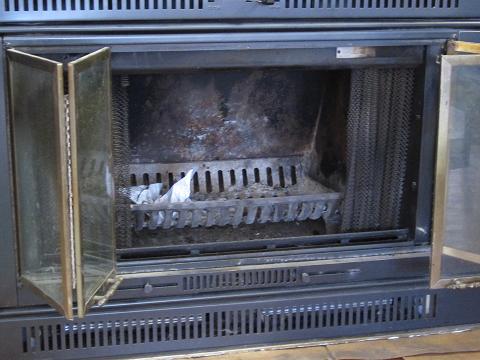

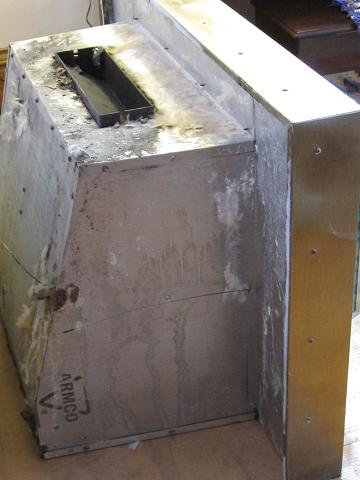
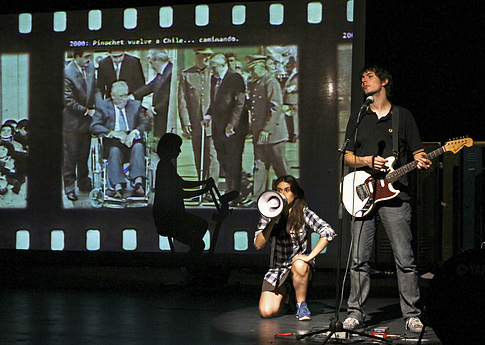 We’ve been enjoying The Walker’s
We’ve been enjoying The Walker’s